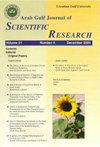Cognitive biases and financial decisions of potential investors during Covid-19: an exploration
Q4 Business, Management and Accounting
引用次数: 0
Abstract
PurposeThis paper aims to identify, examine, and present an empirical research design of behavioral finance of potential investors during Covid-19.Design/methodology/approachA well-structured questionnaire was designed; a survey was conducted among potential investors using convenience sampling, and 200 valid responses were collected. The research work uses multiple regression and discriminant function analysis to evaluate the influence of cognitive factors on the financial decision-making of investors.FindingsRecency and familiarity bias are proven to have the highest significant impact on the financial decisions of investors followed by confirmation bias. Overconfidence bias had a negligible effect on the decision-making process of the respondents and found insignificant.Research limitations/implicationsCovid-19 is a temporary phase that may lead to changes in financial behavior and investors’ decisions in the near future.Practical implicationsThe paper will help academicians, scholars, analysts, practitioners, policymakers and firms dealing with capital markets to execute their job responsibilities with respect to the cognitive bias in terms of taking financial decisions.Originality/valueThe present investigation attempts to fill the gap in the literature on the intended topic because it is evident from literature on the chosen subject that no study has been undertaken to evaluate the impact of cognitive biases on financial behavior of investors during Covid-19.2019冠状病毒病期间潜在投资者的认知偏见和财务决策:探索
目的识别、检验并提出新冠肺炎期间潜在投资者行为金融的实证研究设计。设计/方法/方法设计了一份结构良好的问卷;对潜在投资者进行了方便抽样调查,收集了200份有效回复。本研究运用多元回归和判别函数分析来评估认知因素对投资者财务决策的影响。研究发现,近因偏见和熟悉偏见对投资者的财务决策影响最大,其次是确认偏见。过度自信偏差对被调查者决策过程的影响可以忽略不计,发现不显著。研究局限/启示covid -19是一个暂时的阶段,可能会在不久的将来导致金融行为和投资者决策的变化。本文将帮助学者、分析师、从业者、政策制定者和与资本市场打交道的公司在做出财务决策时履行其关于认知偏见的工作职责。原创性/价值本研究试图填补关于预期主题的文献空白,因为从所选主题的文献中可以明显看出,尚未进行任何研究来评估认知偏差对2019冠状病毒病期间投资者金融行为的影响。
本文章由计算机程序翻译,如有差异,请以英文原文为准。
求助全文
约1分钟内获得全文
求助全文
来源期刊

Arab Gulf Journal of Scientific Research
综合性期刊-综合性期刊
CiteScore
1.00
自引率
0.00%
发文量
0
审稿时长
>12 weeks
期刊介绍:
Information not localized
 求助内容:
求助内容: 应助结果提醒方式:
应助结果提醒方式:


